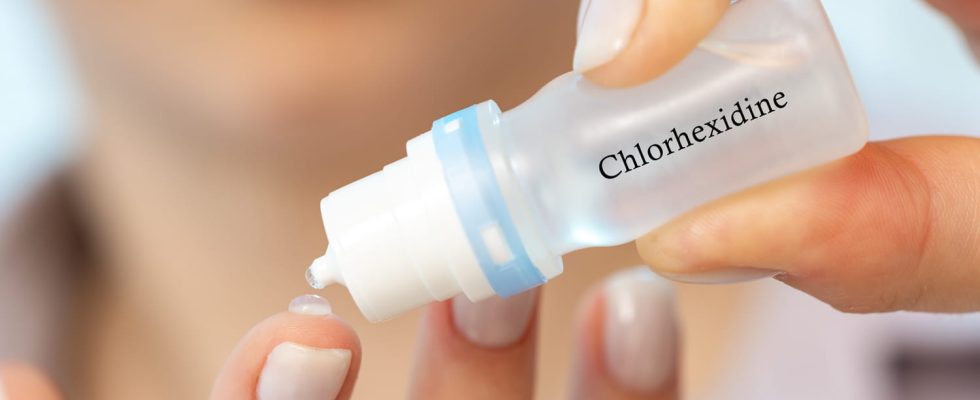The Medicines Agency reports a constant increase in serious allergic reactions associated with chlorhexidine, an antiseptic widely used in France for wounds or mouthwashes.
Chlorhexidine is an antiseptic widely used in France for clean wounds, in mouthwash or as a preservative in certain toothpastes or cosmetics. Be careful, this antiseptic can cause severe allergic reactionsreports the Medicines Agency (ANSM) on November 30, 2023. Such reactions, which however remain rareusually occur within 1 hour of using chlorhexidine. If you have one or more of the symptoms suggestive of a serious allergy, stop using chlorhexidine and get medical help immediately by calling 15. Warning symptoms:
- A urticaria or a rash with redness and itching
- A facial swellinglips, tongue or throat
- Of the breathing difficulties : wheezing or shortness of breath…
- A feeling of weakness or dizziness
- A strange metallic taste in the mouth
- A fainting
- Anaphylactic shock
The ANSM advises against using it as a first disinfectant at home and advises giving priority to washing with clean water and soap to clean a superficial wound: scrape, abrasion, shallow and small cut, small superficial burn.
“Inform your doctor”
If you have ever had or think you have had an allergic reaction to chlorhexidine, tell your nurse, pharmacist, doctor, surgeon or dentist. It is important that he is aware of this allergy, especially when disinfecting your skin duringa puncture (injection of a drug or blood sample for example) or a surgical operation. He can then use an alternative. You can also register this allergy in your Health Space. If in doubt, consult an allergist.
Read also:
Alternatives to chlorhexidine (which can also be associated with a risk of allergy) are:
- as part of a surgical procedure, povidone-iodine or a chlorinated derivative can be used
- in the context of an injection or a blood sample, favor modified alcohol
- When cleaning a superficial wound, encourage or recommend that your patient use water and soap.
